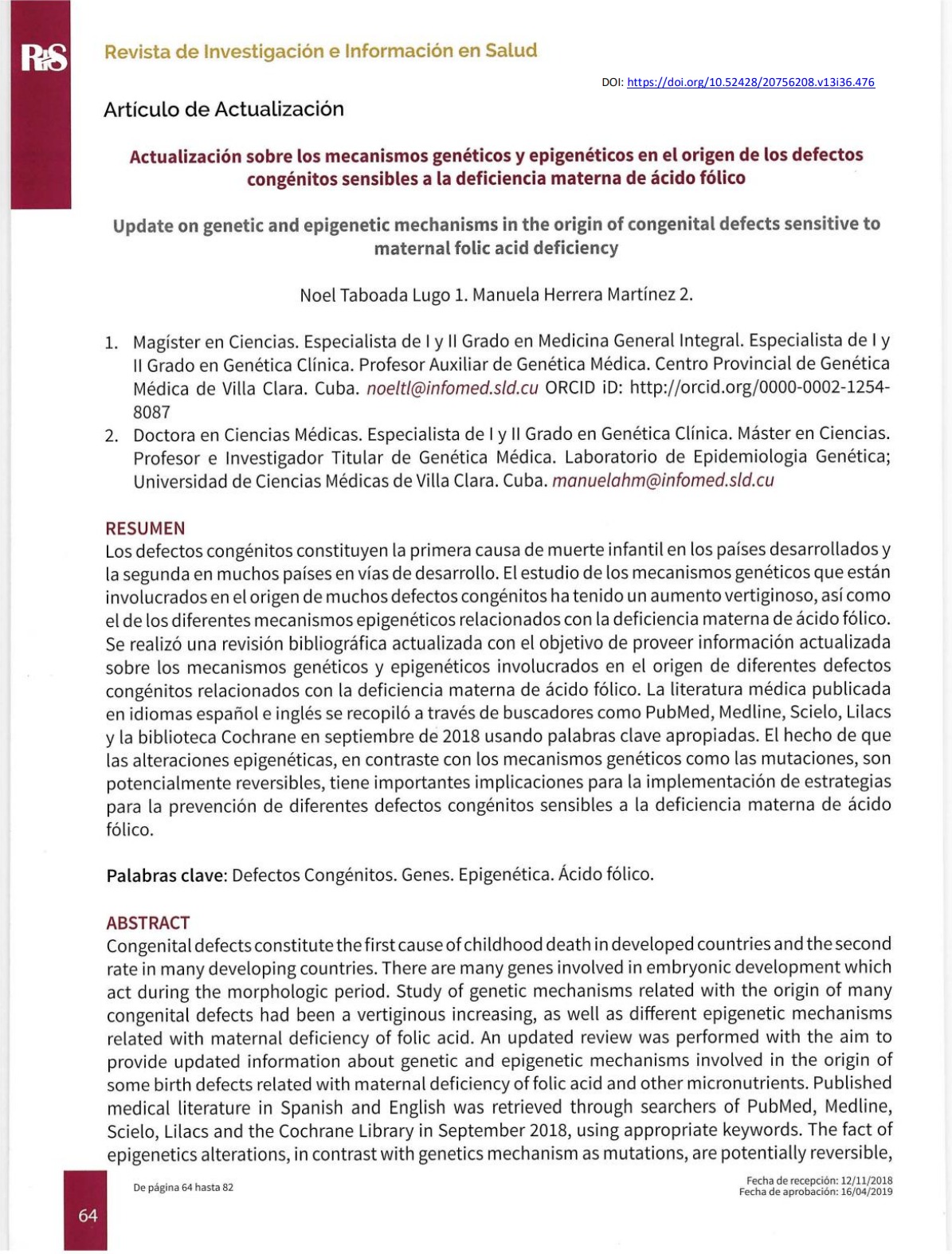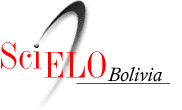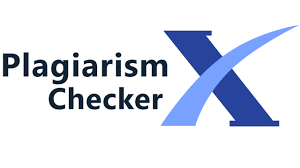Update on genetic and epigenetic mechanisms in the origin of congenital defects sensitive to maternal folic acid deficiency
DOI:
https://doi.org/10.52428/20756208.v13i36.476Keywords:
Birth Defects, Gene, Epigenetic, Folic acidAbstract
Congenital defects constitute the fi rst cause of childhood death in developed countries and the second rate in many developing countries. There are many genes involved in embryonic development which act during the morphologic period. Study of genetic mechanisms related with the origin of many congenital defects had been a vertiginous increasing, as well as different epigenetic mechanisms related with maternal deficiency of folic acid. An updated review was performed with the aim to provide updated information about genetic and epigenetic mechanisms involved in the origin of some birth defects related with maternal deficiency of folic acid and other micronutrients. Published medical literature in Spanish and English was retrieved through searchers of PubMed, Medline, Scielo, Lilacs and the Cochrane Library in September 2018, using appropriate keywords. The fact of epigenetics alterations, in contrast with genetics mechanism as mutations, are potentially reversible, has important implications for implementation of strategies to prevent different birth defects sensitized to the maternal deficiency of folic acid. Keywords: Birth defects. Gene. Epigenetic. Folic acid.
Downloads
References
OMS. Anomalias congénitas. 2015 [internet]. [citado 23 Sept 2018] URL disponible en: http://www. who.int/mediacentre/factsheets/fs370/es/
PORRAS HGL, LEÖN COM, MOLANO HJ, QUINCENO SL, PACHAJOA H, MONTOYA JJ. Prevalencia de defectos congénitos en Risaralda, 2010-2013. Biomédica [internet]. 2016; 36:556-63. [citado 23Sept 2018] URL disponible en: http://dx.doi.org/10.7705/biomedica.v36i4.2771
KHOKHA MK, MITCHELL LE, WALLINGFORD J. An opportunity to address the genetic causes of birth defects. Ped Res 2017; [internet]. 81(2):282-285.[citado 23 Sept 2018]URL disponible en: https:// www.nature.com/articles/pr2016229.pdf
LANTIGUA CA. Introducciön a la Genética Médica. La Habana: Editorial Ciencias Médicas; 2da Ed.
p.401
GHE cause categories and ICD-IO codes. In: WHO methods and data sources for country level causes of death 2000-2015. 2017; [internet]. [citado 23 Sept 2018]URL disponible en: http://www. who.int/gho/mortality_burden_disease/en/index.html
TABOADA LUGO N. Papel del åcido f61ico, zinc y cobre en la prevenci6n primaria de los defectos congénitos. Rev cubana Med Gen Integ [internet]. 2016; 35 (4). [citado 23 Sept 2018] URL disponible en: http://www.revmgi.sld.cu/index.php/mgi/article/view/167
JUSTO SD, FERREIRO RA, LLAMOS PA, RODRIGUEZ TY, RIZO LD, YASELL RM, ET AL. Comportamiento clinico epidemiolögico de los defectos congénitos en La Habana. Rev Cubana Ped [internet]. 2016; 88(1):34-42 [citado 23 Sept 2018] URL disponible en: http://scielo.sld.cu/pdf/ped/v88n1/ ped05116.pdf
CRUZ QFP, BENITEZ CY, MARCHECO T B. Comportamiento clinico epidemiolögico de las anomalias congénitas mayores mås frecuentes en Cuba 2010-2016. [Internet] 2017; [citado 23 Sept 2018] URL disponible en: http://www.geneticacomunitaria2017.sld.cu/index.php/gencom/2017/paper/ view/426/0
BANDYOPADHYAY NEOGI S, SINGH S, RAJ PALLEPOGULA D, PANT H, REDDY KOLLI S, BHARTI P, ET AL. Risk factors for orofacial clefts in India: A case-control study Birth Def Res [internet]. 2017; 109: 1284-1291. [citado 23 Sept 2018] URL disponible en: https://onlinelibrary.wiley.com/doi/ pdf/10.1002/bdr2.1073
SALINAS TVM, SALINAS TRA, CERDA FRM, MARTINEZ VLE. Prevalence, mortality, and spatial distribution of gastroschisis in Mexico. J Pediatr Adolesc Gynecol [internet]. 2018; [citado 23 Sept 2018] URL disponible en: https://www.ncbi.nlm.nih.gov/pubmed/29317257
MARTINEZ LG, BLANCO PME, RODRIGUEZ AY, ENRIQUEZ DL, MARRERO DI. De la embriogénesis a la prevenciön de cardiopatias congénitas, defectos del tubo neural y de pared abdominal. Rev Med Elect [internet]. 2016; 38(2). [citado 23 Sept 2018] URL disponible en: http://scielo.sld.cu/pdf/rme/ v38n2/rme120216.pdf
FENG Y, WANG S, CHAEN R, TONG X, WU Z, MO X. Maternal folic acid supplementation and the risk of congenital heart defects in offspring: A meta-analysis of epidemiological observational studies. Sci Rep [internet]. 2015;5, 8506; [citado 23 Sept 2018] URL disponible en: https://www.nature. com/articles/srep08506.pdf
TABOADA LN, HERRERA MM. Mecanismos epigenéticos y via de sefializaciön Notch en el origen de diferentes defectos congénitos. Rev Medicentro Elec [internet]. 2018; 22(3) [citado 23 Sept 2018] URL disponible en: http://www.med i centro.sld .cu/index.ph p/ medicentro/a rticle/view/2645/2212
LIAO YP, ZHANG D, ZHOU W, ME-NG FM, BAO MS, XIANG P, LIU CQ. Combined folate gene MTHFD and TC polymorphisms as maternal risk factors for Down syndrome in China. Genet Mol Res [internet]. 2014; 13(1):1764-73. [citado 23 Sept 2018] URL disponible en: https://www.geneticsmr.com/sites/ default/files/articles/year2014/v0113-1/pdf/gmr2725.pdf
MARTINEZ GARCIA RM, JIMÉNEZ ORTEGA Al, NAVIA LOMBÅN B. Supiementos en gestaciön: ültimas recomendaciones. Nutr Hosp [internet]. 2016; 33 (Supl. 4): 3-7. [citado 23 Sept 2018] URL disponible en: http://scielo.isciii.es/pdf/nh/v33s4/01_original.pdf
YANG W, CARMICHAEL SL, SHAW GM. Folic acid fortification and prevalences of Neural Tube Defects, Orofacial Clefts, and Gastroschisis in California, 1989 to 2010. [internet]. 2016;106, 12: 1032 1041. [citado 23 Sept 2018] URL disponible en: https://onlinelibrary.wiley.com/doi/pdf/10.1002/ bdra.23514
NICHOLAS DE. Neural Tube Defects. An Rev Neurosc [internet]. 2014; 37: 221-242. [citado 23 Sept 2018]URL disponible en: https://www.annualreviews.org/doi/pdf/10.1146/annurevneuro-062012-170354
TABOADA LUGO N, HERRERA MARTINEZ M, HERNANDEZ ALAGORA AE, NOCHE GONZALEZ G, NOA MACHADO MD. Conglomerados espacio-temporales de defectos del tubo neural y niveles maternos de alfafetoproteina en Villa Clara (2011-2015). Rev cubana Obst Ginecol [internet]. 2016; 42(4). [citado 23 Sept 2018] URL disponible en: http://revginecobstetricia.sld.cu/index.php/ gin/a rticle/view/110
ARTH A, KANCHERLA V, PACHON H, ZIMMERMAN S, JHONSON Q, OAKLEY GP. A 2015 global update on folic acid-preventable spina bifida and anencephaly. Birth Defects Research (Part A) [internet]. 2016; 106:520-529 [citado 23 Sept 2018] URL disponible en: https://onlinelibrary.wiley.com/doi/ pdf/10.1002/bdra.23529
ZAGANJOR I, SEKKARIE A, TSANG BL, WILLIAMS J, RAZZAGHI H, MULINARE J, SNIEZEK JE, CANNON MJ, ROSENTHAL J. Describing the prevalence of Neural Tube Defects worldwide: A systematic literature review. Plos one [internet]. 2016; 11(4 [citado 23 Sept 2018] URL disponible en: https:// www.ncbi.nlm.nih.gov/pubmed/27064786
BA G, JUN WQ, LING CY, HONG HY, TING GT. Prevalence and time trends of spina bifida in fourteen cities located in the Liaoning province of northeast China, 2006-2015. Oncotarget [internet]. 2017; 8(12): 18943-18948. [citado 23 Sept 2018] URL disponible en: https://www.ncbi.nlm.nih.gov/pmc/ articles/PMC5386660/
KHOSHNOOD B, HERMIEN DE WALLE ML, ARRIOLA L, ADDOR MC, BARISIC l, BERES J, ET AL. Longterm trends in prevalence of neural tube defects in Europe: population based study. BMJ [internet]. 2015; 351:1-6 [citado 23 Sept 2018] URL disponible en: https://www.bmj.com/content/ bmj/351/bmj.h5949.full.pdf
MARTIN-SUBEROJI,SIEBERR. Epigenéticayepigen6mica.BolCientlnf.Acad mexicana Ped.[internet]. 2016; 1:261-277. [citado 23 Sept 2018] URL disponible en: www.academiamexicanadepediatria. com
LEUNG KY, PAI YJ, CHEN Q, SANTOS C, CALVANI E, SUDIWALA S, ET AL. Partitioning of one-carbon units in folate and methionine metabolism is essential for neural tube closure. Cell Reports [internet]. 2017; 21: 1795-1808. [citado 23 Sept 2018] URL disponible en: https://doi.org/10.1016/j. celrep.2017.10.072
MORALES MA, MÉNDEZ K, SOL(s E, BORJAS BL, BRACHO A, HERNANDEZ ML, ET AL. C677T polymorphism of the methylentetrahydrofolate reductase gene in mothers of children affected with neural tube defects. Invest Clin [internet]. 2015; 56(3):284-95. [citado 26 Feb 2018] URL disponible en: https://www.ncbi.nlm.nih.gov/pubmed/26710543
PANGILINAN F, MOLLOY AM, MILLS JL, TROENDLE JF, MCDERMOTT AP, SIGNORE C, ET AL. Evaluation of common genetic variants in 82 candidate genes as risk factors for neural tube defects. BMC Medical Genetics [en linea] 2012; 13:62. [citado 23 Sept 2018] URL disponible en:http://www. biomedcentral.com/1471-2350/13/62
WILSON RD, AUDIBERT F, BROCK JA, CAROLL J, CARTIER L, GAGNON A, ET AL. Pre-conception folic acid and multivitamin supplementation for the primary and secondary prevention of neural tube defects and other folic acid-sensitive congenital anomalies. J Obstet Gynaecol Can [internet]. 2015; 37(6):534-52. [citado 23 Sept 2018] URL disponible en: https://www.ncbi.nlm.nih.gov/ pubmed/26334606
TORIYAMA M, TORIYAMA M, WALLINGFORD JB, FINNELL RI-I. Folate-dependent methylation of septins governs ciliogenesis during neural tube closure. FASEB J. [internet]. 2017;31(8):36223635. [citado 23 Sept 2018] URL disponible en: https://www.ncbi.nlm.nih.gov/pubmed/28432198
WANG L, CHANG S, WANG Z, WANG S, HI-JO J, DING G, ET AL. Altered GNAS imprinting due to folic acid deficiency contributes to poor embryo development and may lead to neural tube defects. Oncotarget. [internet]. 2017;8(67):110797-110810. [citado 23 Sept 2018] URL disponible en: https://www.ncbi.nlm.nih.gov/pubmed/29340017
HOBBS CA, CLEVES MA, MCLEOD SL, ERICKSON SW, TAND X, Ll J, ET AL. Conotruncal heart defects and common variants in maternal and fetal genes in folate, homocysteine, and transsulfuration pathways. Birth Defects Research (Part A) [internet]. 2014; 100:116-126. [citado 23 Sept 2018] URL disponible en: https://onlinelibrary.wiley.com/doi/pdf/10.1002/bdra.23225
VAN VELZEN CL, CLUR SA, RIJLAARSDAM MEB, BAX CJ, PAJKRT E, HEYMANS MW, ET AL. Prenatal detection of congenital heart disease—results of a national screening programme. BJOG [internet]. 2016;123:400-407 [citado 23 Sept 2018] URL disponible en: https://obgyn.onlinelibrary.wiley.
GILBOA SM, DEVINE OJ, KUCIK JE, OSTER ME, RIEHLE-COLARUSSO T, NEMBHARD WN, ET AL. Congenital heart defects in the United States. Estimating the magnitude of the affected population in 2010. Circulation [internet]. 2016;134:101-109 [citado 23 Sept 2018] URL disponible en: http:// circ.ahajournals.org/content/134/2/101
SERRA-JUHÉ C, CUSCÖ l, HOMS A, FLORES R, TORÅN N, PÉREZ-JURADO LA. DNA methylation abnormalities in congenital heart disease. Epigenetics [internet]. 2015; 10(2): 167-177 [Internet] [citado 23 Sept 2018] URL disponible en: https://www.tandfonline.com/doi/
Ll FF, ZHOU J, ZHAO DD, YAN P, Ll X, HAN Y, ET AL. Characterization of SMAD3 gene variants for possible roles in ventricular septal defects and other congenital heart diseases. PLOS ONE [internet]. 2015;10(6). [citado 23 Sept 2018] URL disponible en: http://journals.plos.org/plosone/ article/file?id=10.1371/journal.pone.0131542&type=printable
ELSAYED GM, ELSAYED SM, EZZ-ELARAB SS. Maternal MTHFR C677T genotype and septal defects in offspring with Down syndrome: A pilot study. Eg J Hum Gen [internet]. 2014; 15: 39-44 [citado 26 Feb 2018] URL disponible en: https://www.ajol.info/index.php/ejhg/article/view/100842
ORIHUELA MERCADO O, TABOADA LUGO N, LARDOEYT FERRER R, QUINTERO ESCOBAR K.
Prevalencia y caracterizaciön clinicogenética del sindrome Down en la zona Paititi del municipio Trinidad, Departamento Beni. Rev Inv e Inf Salud. [internet]. 2014; 9(21):17-27 [citado 23 Sept 2018] URL disponible en: http://www.univalle.edu/images/publicaciones/Revista%20de%20
Salud%20%2021Armado%2 0 pressed.pdf
KARMILOFF-SMITH A, AL-JANABI T, D'SOUZA, GROET J, MASSAND E, MOK K, ET AL. The importance of understanding individual differences in Down syndrome. FIOOO Research [internet]. 2016; 5(F1000 Faculty Rev):389 [citado 23 Sept 2018] URL disponible en: https://www.ncbi.nlm.nih.gov/ pmc/articles/PMC4806704/pdf/f1000research-5-8085.pdf
DIAZ CS, YOKOYAMA RE, DEL CASTILLO RV. Gen6mica del sindrome de Down. Acta Pediatr Mex [internet]. 2016;37(5):289-296 [citado 23 Sept 2018] URL disponible en: http://www.scielo.org.mx/scielo.php?pid=S0186-23912016000500289&script=sci_arttext
GHOSH S, GHOSH P. Genetic etiology of chromosome 21 non disjunction and Down syndrome birth: Aberrant recombination and beyond. J Down Syndr Chr Abnorm [internet]. 2015; 1(1): 2-5. [citado 23 Sept 2018] URL disponible en:https://www.researchgate.net/profile/Sujoy_Ghosh4/publication/309277695_Genetic_Etiology_of_Chromosome_21_Nondisjunction_and_Down_ syndrome_Birth_Aberrant_Recombination_and_Beyond/links/580eba5808aef766ef10e859/ Genetic-Etiology-of-Chromosome-21-Nondisjunction-and-Down-syndrome-Birth-AberrantRecombination-and-Beyond.pdf
KAUR A, KAUR A. Maternal MTHFR polymorphism (677 C-T) and risk of Down's syndrome child: meta-analysis. J Genet. [internet]. 2016; 95(3):505-13. [citado 23 Sept 2018] URL disponible en: https://www.ncbi.nlm.nih.gov/pubmed/27659321
COPPEDÉ F. The genetics of folate metabolism and maternal risk of birth of a child with Down syndrome and associated congenital heart defects. Front Genet [internet]. 2015; 6:216-223. [citado 26 Feb 2018] URL disponible en: https://www.frontiersin.org/articles/10.3389/fgene.2015.00223/ full#hll
BROOKER AS, BERKOWITZ KM. The role of cohesins in mitosis, meiosis, and human health and disease. Methods Mol Biol [en linea] 2014 ; 1170: 229-266. [citado 23 Sept 2018] URL disponible en:https://www.ncbi.nlm.nih.gov/pmc/articles/PMC4495907/pdf/nihms614241.pdf
SUN F, FUJIWARA Y, REINHOLDT LG, HU J, SAXL RI. Nuclear localization of PRDM9 and its role in meiotic chromatin modifications and homologous synapsis. Chromosom [internet]. 2015; 124:397-415. [citado 23 Sept 2018]] URL disponible en: https://link.springer.com/content/ pdf/10.1007%2Fs00412-015-0511-3.pdf
JUREWICZ J, RADWAN M, SOBALA W, POLANSKA K, RADWAN P, JAKUBOWSKI L, ET AL. The relationship between exposure to air pollution and sperm disomy. Env Mol Mut. [internet]. 2015; 56:50-59. [citado 23 Sept 2018] URL disponible en: https://onlinelibrary.wiley.com/doi/ pdf/10.1002/em.21883
BEZERRA JF, OLIVEIRA GHM, SOARES CD, CARDOSO ML, URURAHY MAG, NE-TO FPF, ET AL. Genetic and non-genetic factors that increase the risk of non-syndromic cleft lip and/or palate development. Oral Diseases [internet]. 2015; 21:393-399 [citado 23 Sept 2018] URL disponible
SILVA MARD, BALDERRAMA IF, WOBETO AP, WERNECK RI, AZEVEDO-ALANIS LR. The impact of nonsyndromic cleft lip with or without cleft palate on oral health-related quality of life. J Appl Oral Sci [internet]. 2018; 26: 1-6 [citado 23 Sept 2018] URL disponible en: https://www.ncbi.nlm. nih.gov/pmc/articles/PMC5912398/pdf/1678-7757-jaos-26-e20170145.pdf
JIA Z, LESLIE EJ, COOPER ME, BUTALI A, STANDLEY J, RIGDON J, ET AL. Replication of 13q31.1 association in nonsyndromic cleft lip with cleft palate in Europeans. Am J Med Genet Part A[internet]. 2015; 167A:1054-1060. [citado 23 Sept 2018] URL disponible en: http://onlinelibrary. wiley.com/doi/10.1002/ajmg.a.36912/pdf
MAI CT, ISENBURG J, LANGLOIS PH, ALVERSON CJ, GILBOA SM, RICKARD R, ET AL. Population based birth defects data in the United States, 2008 to 2012: Presentation of State -specific data and descriptive brief on variability of prevalence. Birth Defects Res A Clin Mol Teratol [internet]. 2015; 103(11): 972-993. [citado 23 Sept 2018] URL disponible en: https://onlinelibrary.wiley.com/ doi/pdf/10.1002/bdra.23461
URIBE M, FOMINA RG, ROMITTI PA, JENKINS MM, GJESSING 1-4K, GJERDEVIK M, ET AL. A population-based study of effects of genetic loci on orofacial clefts. J Dent Res [internet]. 2017;96(11):1322-1329. [citado 23 Sept 2018] URL disponible en:http://journals.sagepub.com/ doi/pdf/10.1177/0022034517716914
SUN Y, HUANG Y, YIN A, PAN Y, WANG Y, WANG C, ET AL. Genome-wide association study identifies a new susceptibility locus for cleft lip with or without a cleft palate. Nat Commun[internet]. 2015; [citado 23 Sept 2018] URL disponible en:https://www.nature.com/articles/ncomms7414.pdf
PAN X, WANG P, YIN X, LIU X, Ll D, Ll X, ET AL. Association between Maternal MTHFR Polymorphisms and Nonsyndromic Cleft Lip with or without Cleft Palate in Offspring, A Meta-Analysis Based on 15 Case-Control Studies. Int J Fertil Steril. [internet]. 2015;8(4):463-80. [citado 23 Sept 2018] URL disponible en: https://www.ncbi.nlm.nih.gov/pmc/articles/PMC4355933/
GIVEN JE, LOANE M, GARNE E, NE-LEN V, BARISIC I, RANDRIANAIVO H, ET AL. Gastroschisis in Europe - A Case-malformed-control study of medication and maternal illness during pregnancy as risk factors. Ped Perinat Epidemiol [internet]. 2017; 31, 549-559 [citado 23 Sept 2018] URL disponible
NAZER HJ, KARACHON EL, CIFUENTES OL, ASSAR CR. Gastrosquisis: pandemia con tasas en aumento? Experiencia del estudio colaborativo latino americano de malformaciones congénitas (ECLAMC) en Chile. Periodo 1982-2014. Rev Chil Pediatr. 2016; [internet] 87(5):380386 [citado 23 Sept 2018] URL disponible en: https://scielo.conicyt.cl/scielo.php?pid=S0370-
&script=sci_arttext&tlng=pt
MARTILLOTTI G, BOUCOIRAN l, DAMPHOUSSE A, GRIGNON A, DUBÉ E, MOUSSAA, ET AL. Predicting perinatal outcome from prenatal ultrasound characteristics in pregnancies complicated by gastroschisis. Fetal Diagn Ther [internet]. 2016; 39:279-286 [citado 23 Sept 2018] URL disponible en: https://www.karger.com/Article/Pdf/440699
PADULAAM, YANG W, SCHULTZ K, TOM L, LIN B, CARMICHAEL SL, ET AL. Gene variants as risk factors for gastroschisis. Am J Med Genet Part A [internet]. 2016;170A:2788-2802. [citado 23 Sept 2018] URL disponible en: https://onlinelibrary.wiley.com/doi/pdf/10.1002/ajmg.a.37883
ROBLEDO AM, BOBADILLA ML, MELLiN SEL, CORONA RA, pÉREZ MJ, CARDENAS RV, ET AL.
Prevalence and risk factors for gastroschisis in a public hospital from west México. Congenit Anom [internet]. 2015;55(2):73-80. [citado 23 Sept 2018] URL disponible en:https://www.ncbi.nlm.nih. gov/pubmed/25243388
JENKINS MM, REEFHUIS J, GALLAGHER ML, MULLE JG, HOFFMANN TH, KOONTZ DA, ET AL. Maternal smoking, xenobiotic metabolizing enzyme gene variants, and gastroschisis risk. Am J Med Genet A [internet]. 2014; 0(6): 1454-1463. [citado 23 Sept 2018]] URL disponible en: https://onlinelibrary. wiley.com/doi/pdf/10.1002/ajmg.a.36478
GENG Y, GAO R, CHEN X, LIU X, LIAO X, Ll Y, ET AL. Folate deficiency impairs decidualization and alters methylation patterns of the genome in mice. Mol Hum Reprod. [internet]. 2015;21(11):844-56. [citado 23 Sept 2018] URL disponible en: https://www.ncbi.nlm.nih.gov/pubmed/26246607

Downloads
Published
How to Cite
Issue
Section
License
Copyright (c) 2019 Noel Taboada Lugo y Manuela Herrera Martínez

This work is licensed under a Creative Commons Attribution 4.0 International License.
Authors who publish with this journal agree to the following terms:
- Authors retain copyright and grant the journal right of first publication with the work simultaneously licensed under a Creative Commons Attribution License 4.0 that allows others to share the work with an acknowledgement of the work's authorship and initial publication in this journal.
- Authors are able to enter into separate, additional contractual arrangements for the non-exclusive distribution of the journal's published version of the work (e.g., post it to an institutional repository or publish it in a book), with an acknowledgement of its initial publication in this journal.
- Authors are permitted and encouraged to post their work online (e.g., in institutional repositories or on their website) prior to and during the submission process, as it can lead to productive exchanges, as well as earlier and greater citation of published work.






















